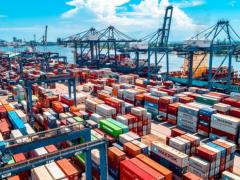Boston City Campus has launched a new initiative to strengthen logistics and supply chain management education, aligning its programmes with global best practices while addressing the unique needs of African markets. The revamped curriculum integrates digital logistics tools and data analytics, sustainability principles and scenario-based learning to better prepare graduates for the region’s complex supply chain environment. “The logistics sector faces a pronounced skills mismatch, with many graduates equipped with theoretical knowledge but lacking the practical experience required in fast-paced, complex environments,” said Dr Nazmira Mohamed, programme coordinator for the Boston Bachelor of Commerce in Supply Chain Management degree and the Boston Higher Certificate in Logistics and Supply Chain Management Practice. “There is also a shortage of qualified trainers with up-to- date industry expertise, affecting education quality. Digital adoption in training remains inconsistent, particularly in rural and underserved regions, limiting student exposure to modern tools.” According to Smangele Makhathini, academic and quality manager, infrastructure challenges such as port congestion, unreliable rail systems, and fragmented transport regulations further compound supply chain complexity, requiring graduates to develop skills in resilience planning and multimodal logistics. “Addressing these challenges demands stronger collaboration between academia and industry,” she said. Boston has expanded its use of online learning platforms to improve accessibility for working professionals and learners in remote areas. “Cutting-edge technology modules, including AI-driven supply chain models, blockchain fundamentals, and digital twin simulations have been incorporated into the curriculum to reflect the technological advancements shaping the logistics sector,” said educator Phumzile Cele. These innovations reflect a broader global shift in logistics education, where technology, sustainability and resilience are becoming central themes. “Data-driven decision making through AI, machine learning, and predictive analytics is becoming foundational,” said Mohamed. “Ethical sourcing, green logistics and circular supply chains are integral to modern programmes. Locally, demand is growing for hybrid learning models that balance flexibility with academic rigour, broadening access to quality education. Targeted short courses and micro credentials are increasingly popular, offering professionals rapid upskilling in specialised areas.” “Education around regional trade facilitation, particularly in relation to the African Continental Free Trade Area (AfCFTA), is also gaining momentum,” said Makhathini – a trend that aligns with industry calls for programmes that equip learners with up-to-date knowledge while fostering the agility to adapt to fast-changing market conditions. Another significant growth area is cross-border logistics education, according to Cele. “This is driven by regional economic integration catalysed by the AfCFTA. Preparing professionals to navigate customs harmonisation, trade compliance, and multi-country operations is critical. “Specialised fields such as cold chain logistics, humanitarian supply chains and last-mile delivery for e-commerce are expanding rapidly and require focused educational programmes.” These emerging fields and specialised programmes are driving a notable increase in demand for logistics and supply chain qualifications across the region. “The rapid growth of e-commerce and other trade has increased the need for skilled professionals in warehousing, distribution and last-mile delivery,” said Mohamed. LV
Preparing graduates for regional challenges
Comments | 0












